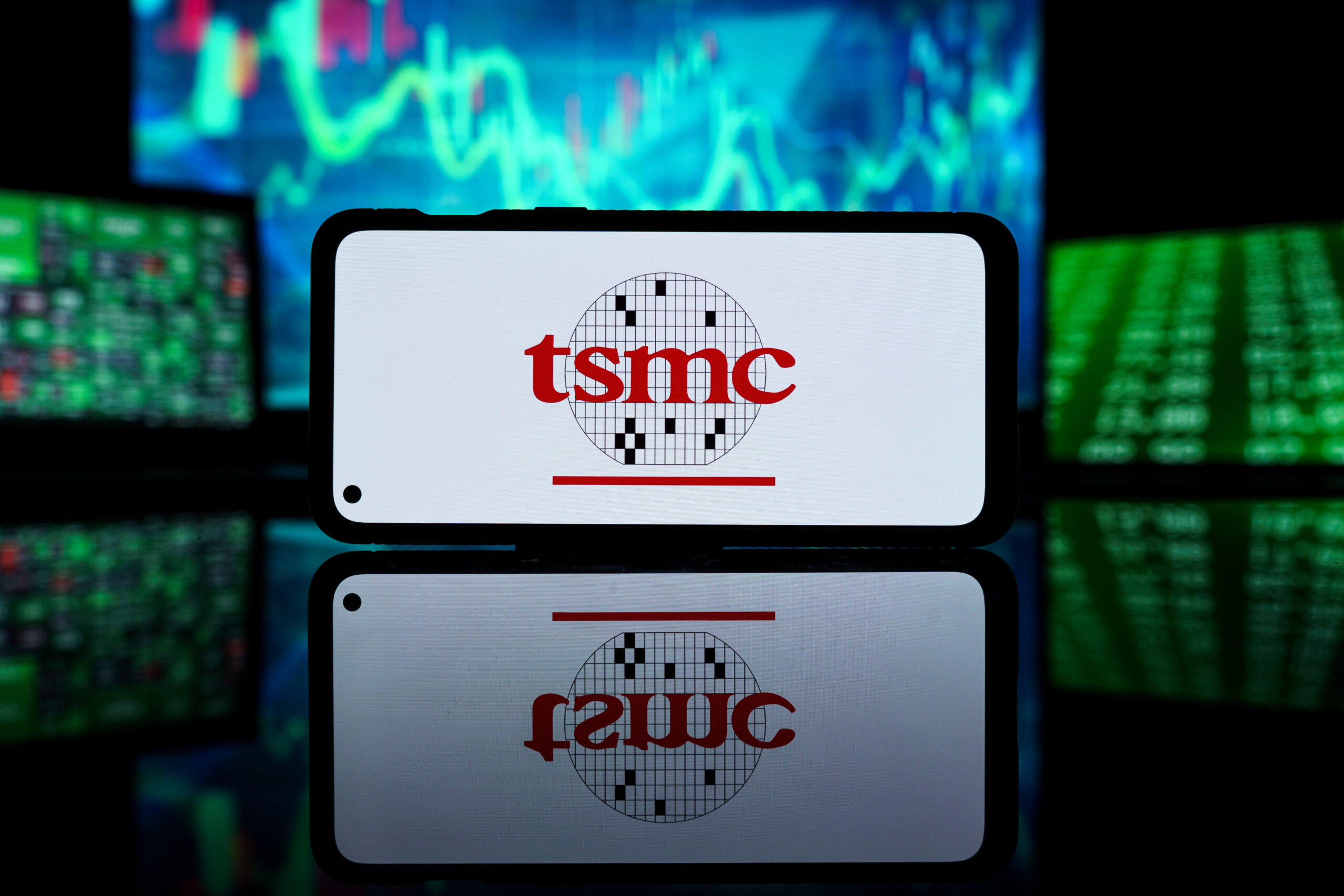A seismic shift may be coming in semiconductor manufacturing as TSMC considers managing Intel’s US factories. This proposal, influenced by Trump-era officials, aims to boost domestic chip production and reduce reliance on foreign supply chains. The potential collaboration reflects broader political pressures and strategic shifts in the global semiconductor industry. As you explore this development, consider its impact on industry dynamics, competition, and efforts to strengthen U.S. manufacturing capabilities. This move could reshape the semiconductor landscape, highlighting the interplay of politics, strategy, and global market forces.
TSMC’s Strategic Considerations: Weighing the Pros and Cons

Potential Benefits of TSMC Managing Intel’s US Factories
TSMC’s potential management of Intel’s US factories presents several strategic advantages. By expanding its footprint in the United States, TSMC could strengthen its relationships with American policymakers and customers. This move aligns with the growing push for domestic semiconductor production, potentially positioning TSMC as a key player in the US chip manufacturing landscape. Additionally, managing Intel’s facilities could provide TSMC with valuable insights into advanced manufacturing processes and technologies, further enhancing its competitive edge in the global market.
Challenges and Risks
However, this opportunity comes with significant challenges. Managing Intel’s factories would introduce operational complexities, requiring TSMC to navigate different corporate cultures and manufacturing systems. There’s also the delicate balance of maintaining a partnership with Intel while remaining a competitor in the broader semiconductor industry. TSMC must carefully consider how this arrangement might impact its existing client relationships and its reputation for neutrality as a pure-play foundry.
Geopolitical Implications
The decision to manage Intel’s US plants carries weighty geopolitical implications. While it could bolster TSMC’s standing with the US government, it might also strain relations with China, a crucial market for the company. TSMC must navigate these complex international dynamics while ensuring its long-term strategic interests are protected. Ultimately, the company’s decision will likely have far-reaching consequences for global semiconductor supply chains and the balance of power in the tech industry.
The Geopolitical Backdrop: Rising Tensions and Domestic Manufacturing Priorities
Shifting Global Dynamics
The semiconductor industry finds itself at the center of a geopolitical storm, with rising tensions between major powers reshaping the landscape. As China’s technological ambitions grow, the United States and its allies are increasingly wary of their dependence on foreign chip suppliers. This concern has led to a renewed focus on domestic manufacturing capabilities, with policymakers viewing semiconductor production as a matter of national security.
The Push for Technological Independence
In response to these challenges, governments worldwide are investing heavily in their local semiconductor ecosystems. The United States has taken significant steps to bolster its chip-making capacity. The CHIPS Act, signed into law in 2022, allocates billions of dollars to incentivize domestic semiconductor production and research. This legislation reflects a broader strategy to reduce reliance on foreign suppliers and maintain technological leadership in critical sectors.
Implications for Global Supply Chains
As countries prioritize domestic manufacturing, the global semiconductor supply chain is transforming. This shift has far-reaching implications for companies like TSMC and Intel as they navigate new partnerships, competitive dynamics, and regulatory environments. The potential collaboration between these industry giants exemplifies the complex interplay between national interests and corporate strategies in an increasingly fractious global landscape.
The CHIPS Act and the Push for US Semiconductor Independence
The CHIPS and Science Act, signed into law in August 2022, represents a significant milestone in the United States’ efforts to bolster its domestic semiconductor industry. This landmark legislation aims to reduce America’s reliance on foreign chip manufacturers and strengthen national security in an increasingly competitive global landscape.
Investing in American Innovation
The CHIPS Act allocates $52.7 billion for semiconductor research, development, and manufacturing. This substantial investment is designed to:
Incentivize companies to build chip factories in the US
Fund cutting-edge research and development initiatives
Create thousands of high-skilled jobs in the tech sector
By fostering a robust domestic semiconductor ecosystem, the US aims to secure its position as a leader in this critical industry.
Addressing Global Supply Chain Vulnerabilities
Recent global events, including the COVID-19 pandemic and geopolitical tensions, have exposed the fragility of international supply chains. The CHIPS Act seeks to mitigate these risks by:
Reducing dependence on foreign manufacturers, particularly those in Asia
Ensuring a stable supply of chips for critical industries like defense and automotive
Enhancing America’s ability to weather future global disruptions
As the world becomes increasingly reliant on advanced technologies, the push for semiconductor independence has become a top priority for US policymakers and industry leaders alike.
Navigating the Competitive Landscape: TSMC’s Relationship with Intel
A Delicate Balance of Cooperation and Competition
TSMC’s potential management of Intel’s US factories represents a unique and complex dynamic in the semiconductor industry. While these two tech giants have long been competitors, this proposed collaboration highlights the shifting landscape of global chip production. TSMC, known for its cutting-edge foundry services, would be stepping into a role that blurs the lines between partner and rival.
Strategic Implications for Both Companies
For TSMC, overseeing Intel’s US operations could provide valuable insights into the American market and strengthen its foothold in the country. This move aligns with the growing trend of localized production and could help TSMC navigate potential geopolitical challenges. However, it also raises questions about how this arrangement might impact TSMC’s expansion plans in the US.
Intel, on the other hand, could benefit from TSMC’s expertise in advanced manufacturing processes. This collaboration might accelerate Intel’s efforts to regain its technological edge in chip production. Yet, it also presents risks, as Intel would be relying on a major competitor for critical operational support.
Industry-wide Ripple Effects
The semiconductor ecosystem is closely interconnected, and this potential partnership between TSMC and Intel could have far-reaching consequences. Other chip manufacturers and foundries may need to reassess their strategies due to this development. Additionally, customers of both companies might find themselves navigating a more complex supply chain landscape.
The Global Implications: How TSMC’s Decision Could Shape the Semiconductor Industry
Shifting Power Dynamics in Chip Manufacturing
TSMC’s potential management of Intel’s US factories could dramatically alter the global semiconductor landscape. This move would not only strengthen America’s domestic chip production capabilities but also reshape the competitive dynamics between major players in the industry. By bringing TSMC’s expertise to US soil, the initiative could accelerate technological advancements and potentially lead to more robust supply chains for critical components.
Geopolitical Ramifications and Tech Independence
The decision carries significant geopolitical weight. As nations worldwide strive for technological self-sufficiency, TSMC’s involvement in US manufacturing could influence international relations, particularly with China. This shift might prompt other countries to reassess their semiconductor strategies, potentially leading to a more distributed global chip production network. Such a change could reduce vulnerabilities in the supply chain but may also intensify competition for talent and resources.
Innovation and Market Evolution
TSMC’s possible management of Intel’s facilities could spur innovation in chip design and manufacturing processes. This collaboration might lead to breakthroughs in advanced node technologies, benefiting various sectors, from consumer electronics to artificial intelligence. Moreover, it could catalyze a broader transformation in how semiconductor companies operate, encouraging more partnerships and shared resources to stay competitive in an increasingly complex technological landscape.
In Closing
As you consider the potential implications of TSMC managing Intel’s US factories, it’s crucial to recognize the broader context of global semiconductor competition and national security concerns. This development represents a significant shift in the industry landscape, with far-reaching consequences for supply chains, technological innovation, and international relations. While the outcome remains uncertain, it’s clear that the semiconductor industry is entering a new era of strategic realignment. As geopolitical pressures continue to shape the sector, you can expect further developments that will redefine the global chip manufacturing ecosystem. Stay informed about these evolving dynamics, as they will undoubtedly impact the future of technology and economic competitiveness on the world stage.
More Stories
Meta AI App Adds Warning to Prevent Accidental Sharing of Private Chats
In today's world, digital privacy is more important than ever. Meta has taken a major step to protect user data....
Google Closes Loophole That Let Hackers Bruteforce Your Hidden Phone Number
Recently, Google took decisive action to close a significant vulnerability that could potentially expose users’ hidden phone numbers to malicious actors.
Southern Cross NEXT Lights Up Pacific with Ultra‑Low‑Latency High‑Capacity Cable
The Southern Cross NEXT (SX NEXT) submarine cable emerges as a pivotal innovation, redefining digital landscapes across the Pacific. Officially operational since July 2022, this 15,857 km four-fiber-pair marvel links Los Angeles and Sydney, with crucial connections to Auckland, Fiji, Tokelau, and Kiribati.
Starlink and OneWeb Gear Up to Transform South Korea’s Telecom Terrain
South Korea is entering the low Earth orbit (LEO) satellite communications field with strong government support for SpaceX’s Starlink & Eutelsat OneWeb.
Mumbai’s Digital Pivot: Bollywood IT Park Becomes NTT’s Data Center Powerhouse
Recently, NTT Global Data Centers & Cloud Infrastructure India made a notable ₹855 crore acquisition. It purchased the Bollywood, Balaji IT Park from the iconic Kapoor family.
Thailand’s Hyperscale Leap: Digital Edge and B.Grimm Unite for Sustainable Data Center Growth
Digital Edge & B.Grimm Power partnered up to develop a hyperscale data center campus in the Eastern Economic Corridor.


